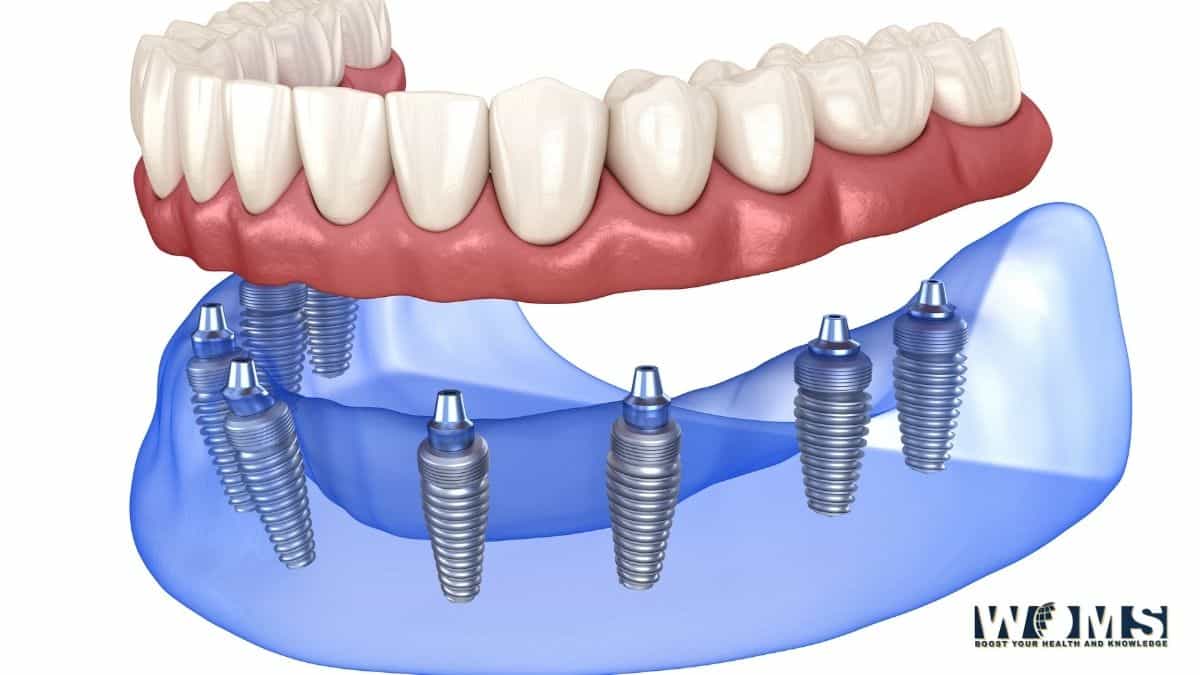What Are Dental Implants And Why Do You Need Them?

In terms of replacing a tooth or teeth that are damaged or missing, you’ve got several options to choose from. If you’re looking for something that’s long-lasting and permanent, dental implants are the way to go.
Dental Implant: What Is It?
A dental implant is a metal structure that replaces the tooth root. Most often, it’s a screw-like structure that’s inserted into the jawbone and acts as the anchor for an artificial tooth known as a crown. Crowns are custom-made in order to fit the missing space and matching the color of the natural teeth, functioning and feeling like a real one. An abutment then connects the crown to the dental implant.
Most dentist in Bankstown recommends dental implants as a better alternative to bridgework or dentures that does not fit well. It’s also the best course of action when the natural teeth roots don’t allow building dentures or bridgework tooth replacements.
Advantages of a Dental Implant
- Enhanced Appearance, Comfort, and Speech
As mentioned before, dental implants feel and look like natural teeth. Plus, since they are designed to fuse with your jaw bone, they are a permanent solution. This should also help eliminate the discomfort associated with the removable dentures.
In addition, unlike the poor-fitting dentures, you don’t have to worry about your teeth slipping within your mouth, preventing mumbles or slurring your words and allowing you to speak better.
- Better Oral Health
A dental implant doesn’t require the reduction of other teeth, like a tooth-supported bridge. Since the neighboring teeth are not changed to support the implant, more of your natural teeth are left intact, enhancing your long-term oral health. Also, individual implants allow easier access between teeth for improvement in oral hygiene.
- Durability and Convenience
Implants are long-lasting. In fact, with proper care, most implants can last a lifetime. Also, unlike the removable dentures, a dental implant eliminates the embarrassing inconvenience of removing your dentures and the need for messy adhesives just to keep them in place.
3 Types of Dental Implants
Dental implants are categorized into three types:
- Endosteal Implants
This is the most common and safest type of dental implant. While it is recommended and suitable for most patients, you need to have a healthy and strong jawbone for the post to fuse with.
Endosteal implants include screw-like placeholder posts that are placed into the jaw. The jaw is allowing to heal and fuse with the post. Once healed, the crown is then placed onto the post to fit in with the neighboring teeth.
- Subperiosteal Implants
If you don’t like the idea of something being placed into your jawbone, then you might want to consider the subperiosteal implant.
Rather than being fixed into the jawbone, a subperiosteal implant rests on top of your jawbone, but it’s still placed under your gum. The metal frame is placed under your gum with a post attached to it. Your gum should heal around the frame, holding it in place. Once healed, the crown is secured to the poles, which come from the gum.
Subperiosteal implants are most suitable for patients who don’t have enough jawbone for an endosteal implant to be placed or if they don’t want to go through intensive oral surgery.
- Zygomatic Implants
A zygomatic implant is a newcomer in dental implant technology, developed only in the late 1990s. It’s a complicated process and is only intended to replace a tooth or teeth in your upper jaw but don’t have enough bone to place a traditional implant.
Unlike the previous types of implants, which are placed either on or above the jawbone, a zygomatic implant is anchored in your cheekbones, which are known as the zygoma. These extra-long implants are placed from inside your mouth near the location of your bicuspid teeth. The implant anchors into the solid, thick zygomatic bone.
Implant Configuration Options
Once you decided which kind of implant you want, you got three different configurations to choose from:
- Single Implant
Suitable for replacing a single missing tooth.
- Implant-Supported Bridge
Similar to the regular dental bridges, however, instead of being supported by altered natural teeth, they’re supported by dental implants, replacing several teeth.
- Implant-Retained Denture
This is a type of overdenture that’s supported by and attached to implants. It has special attachments which snap onto several implants in the jawbone. It is suitable for patients who do not have any teeth in their jaw but has enough bone to support implants.
Dental Implants: Risks and Potential Complications
Dental implant surgery is not suitable for those with:
- Uncontrollable metabolic disease
- Acute illness
- Soft tissue or bone disease or infection
- Heavy smokers
- Psychiatric or behavioral disorders
- AIDS
- Diabetes
- HIV
- Parafunctional habits such as tooth clenching or grinding
- Osteoporosis
If patients with any of the above problems undergo dental implant surgery, there’s a higher risk of implant failure.
In addition, dental implants are not suitable for those undergoing:
- Radiation therapy of the neck or head
- Chemotherapy
- Bisphosphonate drug treatment
Now, for those who are allowed for a dental implant, they can experience various complications and side effects during or afterward the procedure. These include:
- Implant infection
- Nerve damage
- Implant exposure above the gumline
- Opening of the incision after surgery
- Implant movement
For those who experienced exposure or movement of their implant, additional procedures are required in order to improve the health of the gums and bone or replacing or removing the implant.
Meanwhile, if an implant placement has been unsuccessful, you should notice:
- Progressive, rapid bone loss
- Excessive movement of the implant
- Pain when tapping on the implant
- Pus or other secretions from the site
Conclusion
As you can see, dental implants are a better and long-lasting alternative to removable dentures and bridges to replace your missing teeth and are worth the long healing process. Although they’re generally safe and successful, dental implants are not suitable for all people and, like any other dental procedure, carry risks and complications.
So, anyone considering a dental implant should consult their dentist whether it’s the right solution for them.




